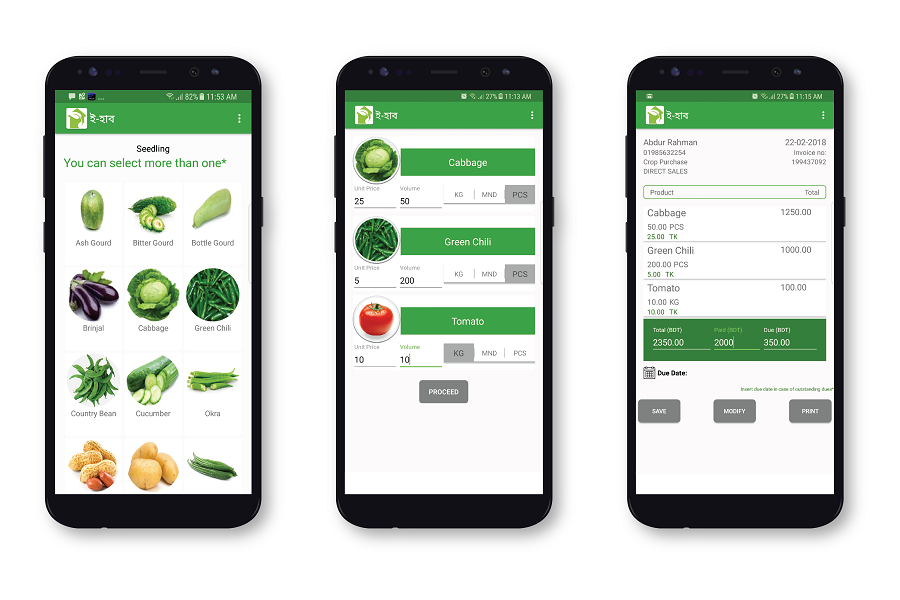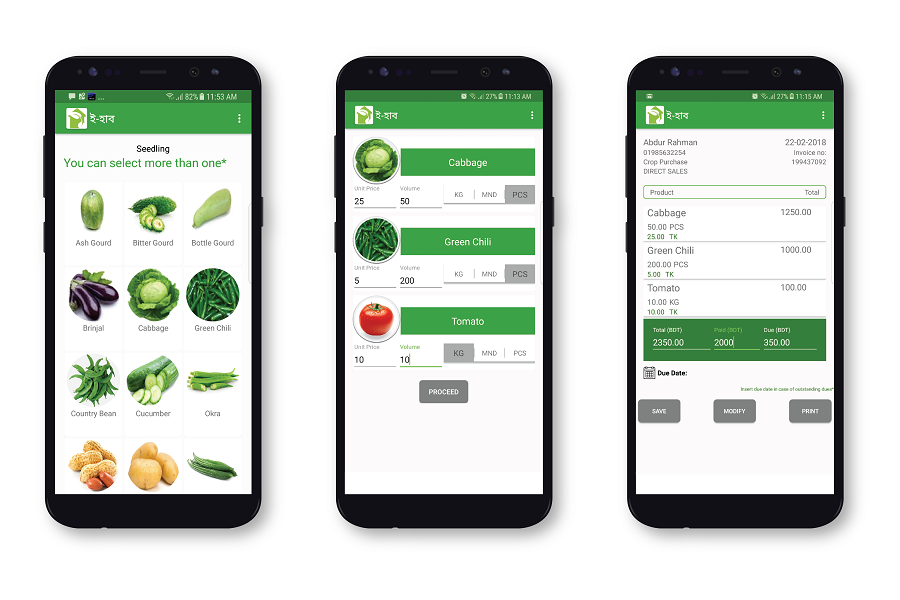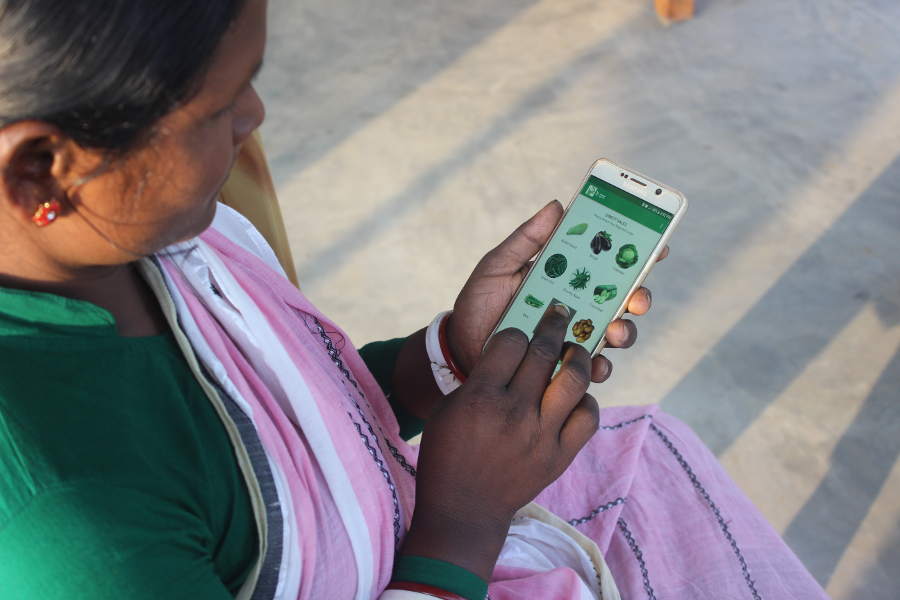
eFarmersHub: Digitizing Agribusiness Operations
Data and ag-tech are driving sweeping changes in agriculture development
Data and ag-tech are changing the game. The integration is opening up wider avenues of business opportunities, rendering greater income potential and inspiring the next generation of agribusinesses to resurrect the image of an industry that’s slowly taking a backseat, but which nonetheless has been the growth driver of Bangladesh in its early years. A paradigm shift in agriculture is already underway.
Recognizing an untapped opportunity to digitize agribusiness operations for SFSA
Syngenta Foundation for Sustainable Agriculture (SFSA) runs a Farmers’ Hub (FH) model across six countries including Bangladesh. Essentially, each FH is an agribusiness that offers multiple services to local farmers on a commercial basis.
Absence of a data-driven approach is prevalent across the entire agri value chain ranging from farmers to agri entrepreneurs to franchisees to forward actors. Farmers need access to timely market information and agri inputs; agri entrepreneurs grapple with collecting cash on time and optimizing product inventory to adequately grow; franchisees and forward market require robust backward value chain actors profiling to ensure greater transparency for improving the ultimate customer experience. In short, an efficient digital solution needed to be deployed to solve the pain points.
LightCastle and SFSA jointly introduced a novel mobile-light ERP solution – eFarmersHub – to solve the problem. It is an integrated digital solution that combines four components: a mobile application, a web dashboard, a monitoring & evaluation (M&E) tool and a notification center.
Using the app, FH owners keep record of daily transactions, generate invoice, receive credit alerts, access financial reports and compare market prices across hubs. Franchisees track these entrepreneurs’ and smallholders’ performance – both individually and collectively – in real-time by accessing various reports through a web dashboard. Additionally, they can leverage the M&E tool to assess their field team’s performance – who’re responsible for managing the FHs.
What’s more, through the notification center, they can maintain better relationship with the farmers. By sending text messages to equip smallholders and FHs with agricultural know-how, timely notification and promotional offers, franchisees increase customer loyalty. A dedicated call center provides round-the-clock technical support.
 Pilot paved the way for a successful rollout
Pilot paved the way for a successful rollout
Before the advent of eFarmersHub, market actors used to collect information in the traditional way – the good, old pen-and-paper style. However, the process is cumbersome, time-consuming, prone to manual errors – all of which ultimately result in sub-optimal efficiency.
In the course of development, first we ran a pilot in Bangladesh with minimum viable features to understand whether the technology would receive user acceptance. We visited the field and spent considerable time with the smallholders and agribusiness owners to understand their business needs in granular details. At the pilot stage, the app was text heavy, took longer time to process computations, didn’t have offline capability and lacked notification system. Likewise, the web dashboard could only provide limited reports and didn’t have drill-down filtering options. All of these challenges, among several others, were recognized in quick time during test runs. However, the most interesting finding was that the market actors embraced the technology and found it valuable – validating initial hypothesis.
Once our initial hypotheses was validated, we committed time and resources to build a robust solution – rolling out features in different phases. Now, the mobile app features an intuitive UI/UX (icon/tile based display), loads faster, has multi-lingual capability, track geo-location and is able to capture data even without internet. Moreover, the web dashboard consists of in-depth reports in crisp visualizations, product setup panel, multi-layer filtering options, and a notification system. Because of these additions, the market actors have increased adoption rates. Most recently, we have added the offline feature capability to tackle the limited internet connectivity issue in remote areas.

Smallholders’ income increased by 34% and post-harvest losses declined by 3-8%
Currently, e-FarmersHub is being used across 100+ FHs in 4 countries including Bangladesh, Senegal, Indonesia and Kenya. Findings from Bangladesh’s data so far indicate early signs of success. Yields of associated farmers increased by 25% on average compared to the non-associated farmers (increase of 13%). Smallholders’ income increased by 34% and post-harvest losses declined by 3-8%.
What awaits in the future?
At present, eFarmersHub receives good recognition from the market actors. We are constantly collecting feedback from the users and are working to optimize product performance while also developing new, useful features in phases. Simultaneously, we will be generating value-adding dashboard reports for franchisees and SFSA’s management. The product will be exported to more countries including Mali later this year. We also harbor plans to introduce payment getaway, marketplace creation et al features in the near future.
With increasing support and investment on the digital front across the country, Bangladesh’s agriculture sector is likely to witness more digital transformation. Early results underscore the conclusion that the product can be a viable business agricultural service model. All these point to a brighter future, empowering market actors – including smallholders – to become more data-driven in their day-to-day decisions.
